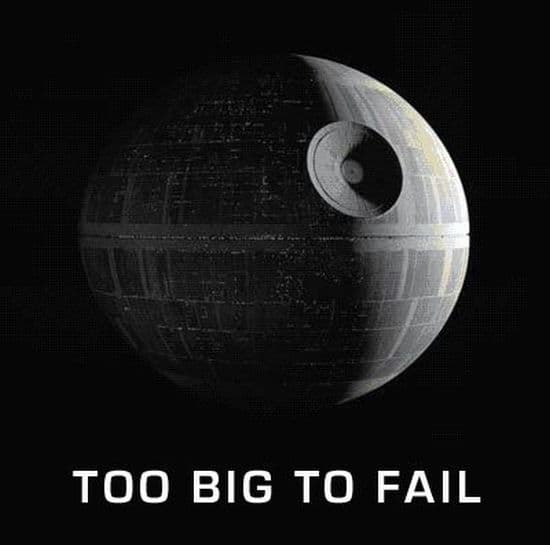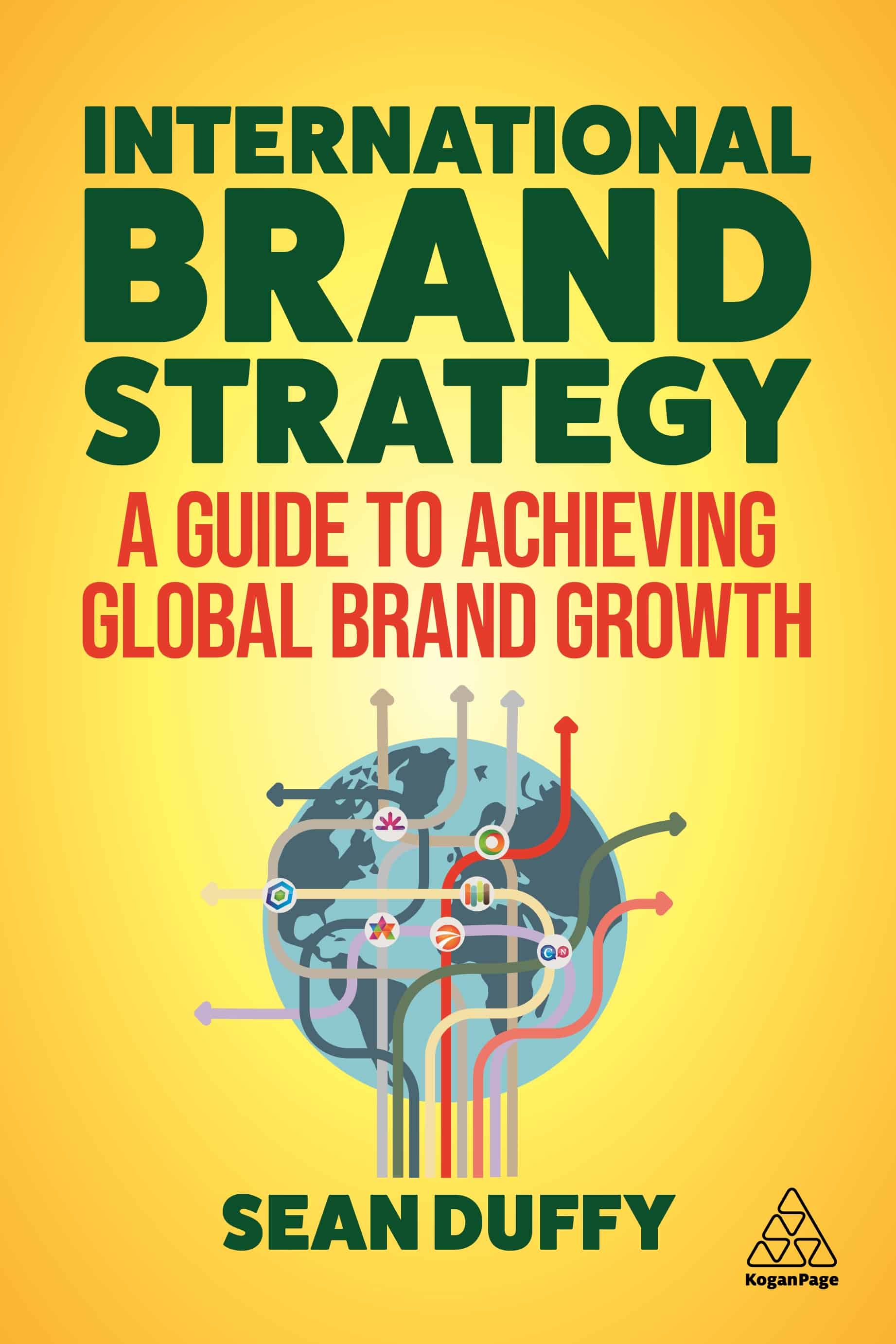The Google Delusion: Too big to fail?
Part 4 of 4 From a branding perspective, Google's behavior is consistent with a company that sees itself as too big to fail. ...
10 Jul 2012 7019 ViewsPart 4 of 4
From a branding perspective, Google’s behavior is consistent with a company that sees itself as too big to fail. As recent history has taught us, no company is too big to fail (or, at least, swiftly fade into irrelevance). To be clear, I do not want Google to falter or fail. I would like Google to succeed and to use its smarts and influence to give real meaning to the motto “Don’t be Evil.” That’s why I would like to see them better manage their brand. The business risks associated with Google’s poor brand management are real, yet completely avoidable if Google’s leadship could see them.
 As a very wise positioning consultant once told me, “It’s hard to see the label from inside the jar.” In many ways the role of a brand consultant is like the role of the ghosts in Dickens’ “A Christmas Carol.” We help top management gain the perspective to understand the story created by their brand over time, how it is perceived today and what the future is likely to hold for it based on the brand story and perceptions. Right now Google’s ghost of branding future may not portend a lonesome tombstone, but its boney finger is pointing to a potential tipping point in public sentiment. Like Scrooge, Google would be prudent to ask “Are these the shadows of the things that Will be, or are they shadows of things that May be, only?” and then reconsider their ways.
As a very wise positioning consultant once told me, “It’s hard to see the label from inside the jar.” In many ways the role of a brand consultant is like the role of the ghosts in Dickens’ “A Christmas Carol.” We help top management gain the perspective to understand the story created by their brand over time, how it is perceived today and what the future is likely to hold for it based on the brand story and perceptions. Right now Google’s ghost of branding future may not portend a lonesome tombstone, but its boney finger is pointing to a potential tipping point in public sentiment. Like Scrooge, Google would be prudent to ask “Are these the shadows of the things that Will be, or are they shadows of things that May be, only?” and then reconsider their ways.
In my past three posts I’ve outlined several ways that Google has dropped the ball with regard to managing its brand and how this could negatively affect their ability to compete by creating opportunities for competitors. I’d like to end this series with a look at five things Google could do today to fortify its brand and its business.
1. Make brand management a priority
The current leadership has a pronounced branding blind spot. This type of thinking may be as foreign to Google’s management as machine language is to me. But that does not make it unimportant, especially to their shareholders. Poor brand management hurts earnings. Google needs to take this issue seriously and include brand equity considerations in its day-to-day decision making. That probably means introducing someone who is skilled in brand management into the upper echelons of the company. Entering an engineering-focused firm to implement change can be a suicide mission for any market-focused professional. This person will need to be backed with considerable power in the organization because they will need to effect real change in ways that are not likely to be understood or appreciated by the rank and file.
2. Revise the Google brand architecture
Rethink the aggressive “branded house” strategy Google has committed to pursue. This brand architecture framework makes little sense for Google. Given the breadth of their product offer, it’s confusing to consumers and dilutes their brand values. Most notably, the branded house approach poses a great liability. The risk of a branded house strategy is that if the main brand is involved in scandal, all products pay the price. The current wave of criticism directed at Google over privacy and antitrust concerns will taint every product that bears the Google name. Google has the resources to successfully create, launch and manage multiple brands to pursue different areas of excellence and value. Google would benefit from taking a serious look at the breadth of its current and planned offerings and then create an intelligent brand architecture: One that lets Google stand for search and related products like maps, glasses and advertising services. Then create separate brands with separate values for other product categories as it does today with its YouTube and Android brands.
3. Update Google’s mission statement and values
The company seems to have strayed far from its original brand strategy. In fact they are so far off the track that their original brand banter could be interpreted as a ruse meant to deceive an unwitting public as they bilk them of their data and privacy. If Google’s prime directive is to acquire user data and sell it then update the mission to reflect this. If not, then go back to the business of organizing information and spin off the rest of the businesses into separate brands. This would address John Gruber’s observation that, “It’s not that Google is evil. It’s that they’re hypocrites. That’s the difference between Google and its competitors.” And if they do refocus the Google brand on search they will need to correct the perception that they bias search results for their own gain. While they are at it, they may also want to find ways to improve search before someone else does. Google search is OK, but as a user I haven’t noticed any improvement in a decade. I don’t need 30,285,012 results found in a quarter of a second. I’d gladly wait an entire half second for 30 results that were exactly what I was looking for.

RUDE AWAKENING: “You are not their client; you are their product.” Sen. Al Franken (photo: The Matrix)
4. Start respecting customers
Google is so preoccupied with second guessing me that the thought of simply asking me what I want would never occur to them. That’s annoying. This is made worse by the fact that their attempts to second guess are often dead wrong as evidenced by the number of completely irrelevant ads they serve me each day. Subversion has replaced transparency as a way of dealing with the public (PS: burying obscure clauses or omissions in a “terms of use” agreement is not transparency). Google needs to find a new, more genuine and transparent way to interact with its customers, safeguard users’ interests and regain their trust. It starts with not taking their customers for granted. Just because billions of people use Google search regularly does not make them loyal customers or even fans. Far from it. My loyalty to the Alta Vista brand didn’t stop me from switching to Google overnight. And respect also involves making the effort to understand consumers (not by cyber-spying but by talking to them) and better serve their interests. Because if Google doesn’t do it – someone else will.
5. Change Google’s “lying ways”
That’s how Wired magazine, one of the most respected brands in technology, characterized Google’s behavior in relation to inquiries made by “fed-up European regulators.” The way that the Street View data collection controversy was handled by Google was unfortunate because it looks like they were purposefully and repeatedly lying. Can we expect more of the same? And what else might they be lying about? The controversy surrounding Google’s privacy practices and antitrust issues are not likely to go away. How will the Google brand cope? In their book Tell the Truth, Jonathan Salem Baskin and Sue Underman offer a solution. They make a convincing case for why telling the truth is “the only viable and sustainable source of long-term competitive advantage” brands have today. This is acutely true for brands that are under intense scrutiny like Google. I can think of few quicker ways for Google to alienate itself from its customers or the press than to be perceived as lying about things that are important to us.
Google is one of the most recognized brands on the planet. Awareness creates business opportunities and contributes greatly to brand equity. But awareness alone will only take Google so far with consumers. It will certainly not guarantee loyalty when consumers are presented with options in any of the categories where Google competes today. Other brand qualities like focus, value, understanding and truthfulness will be needed to win those battles. And that will require a reboot in the way that Google manages its brands.

As several friends have pointed out, Google is not alone with its data grabbing obsession or engaging in business practices that are less than virtuous. It could be argued that Apple, Amazon, Microsoft, Yahoo and pretty much everyone else who can is doing the same thing. But because of their success, awareness and resources, Google is in a unique position to define how business will be conducted by all players in the digital economy. The world will be a better place if that new way of doing business reflects the brand values Google claims to embrace. For that to happen Google’s leadership will need to develop a new search capability: soul searching.
Like this post? You'll find more marketing insights in my new book: International Brand Strategy: A guide to achieving global brand growth, now available from booksellers globally. Order your copy here.
Speaker, consultant & founder of Duffy Agency, the flipped digital agency that provides accelerated growth to aspiring international brands.





